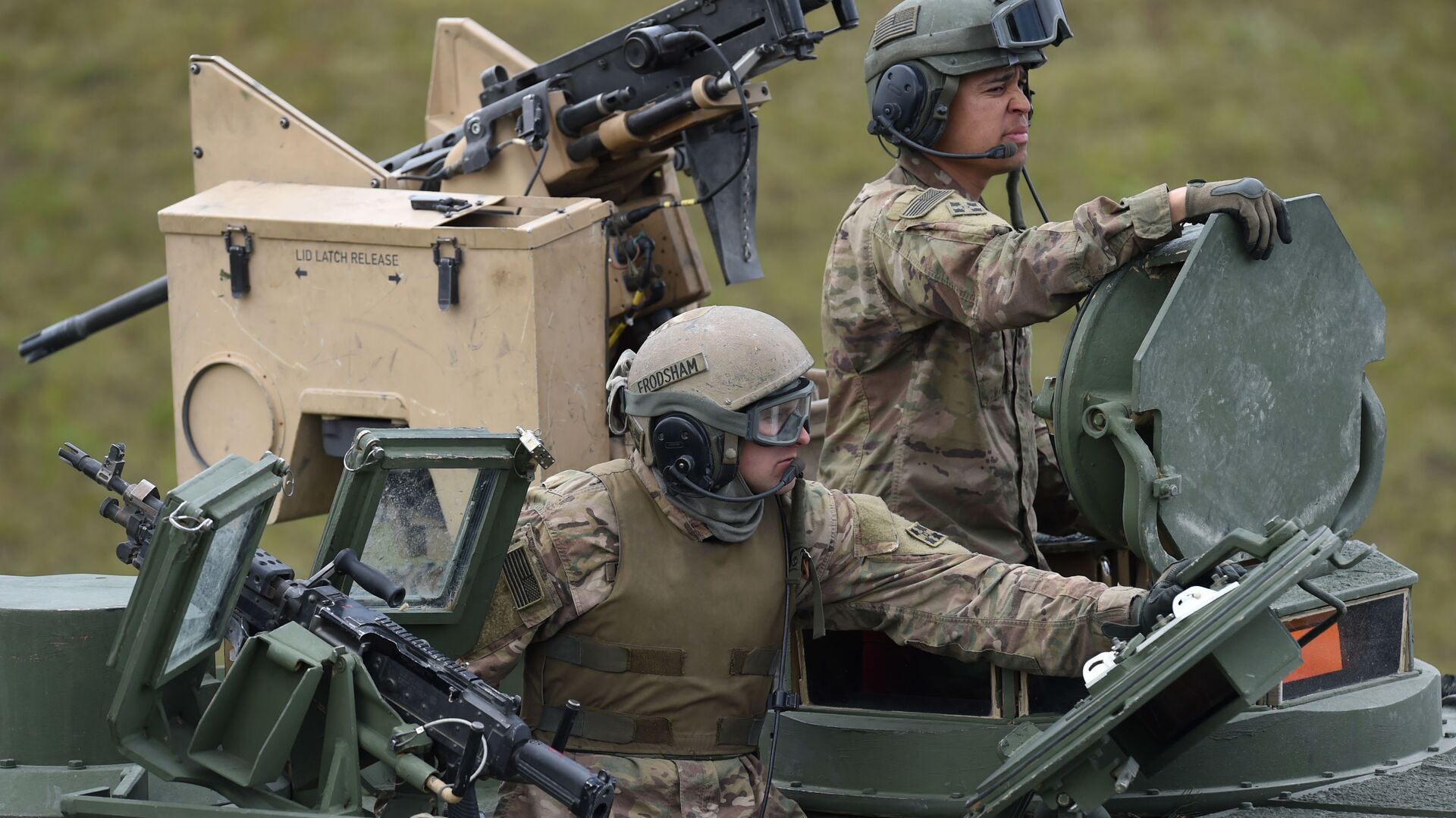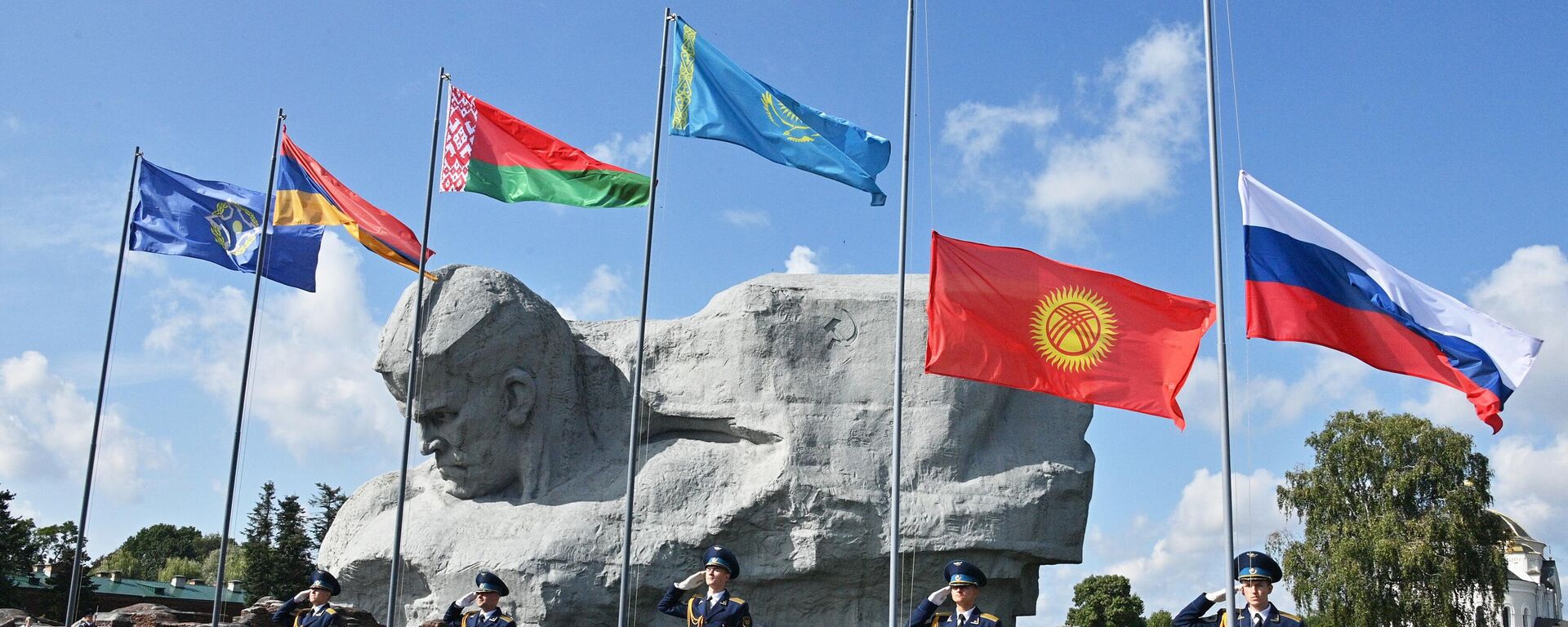https://sputnikglobe.com/20240606/natos-routes-for-troop-redeployment-to-russia-run-via-italy-norway-balkans---reports-1118814100.html
NATO's Routes for Troop Redeployment to Russia Run Via Italy, Norway, Balkans - Reports
NATO's Routes for Troop Redeployment to Russia Run Via Italy, Norway, Balkans - Reports
Sputnik International
Corridors for swift redeployment of US troops in Europe in the event of a direct conflict between NATO and Russia are running in three directions: through the Apennine Peninsula, Scandinavia and the Balkans, Italian newspaper La Stampa reported on Thursday, citing a Western intelligence source.
2024-06-06T15:05+0000
2024-06-06T15:05+0000
2024-06-06T15:05+0000
military
russia
balkans
nato
europe
russia-nato showdown
https://cdn1.img.sputnikglobe.com/img/107957/10/1079571024_0:143:3135:1906_1920x0_80_0_0_7cca481c48c55c5af8c969d002be86c7.jpg
On Tuesday, The Telegraph newspaper reported, citing officials, that NATO countries were developing land corridors for swift redeployment of troops and military hardware to the front line in the event of a war with Russia in Europe. The source told La Stampa that NATO had developed three land routes to the Russian borders to be used by US forces in the event of potential "Russian aggression." One is through an Italian port and further across Slovenia, Croatia and Hungary; another is through a port in Turkey or Greece and further across Bulgaria and Romania, and the third is through a port in Norway and then across Sweden and Finland. Should Moscow attack North European ports in the mid-run, which is what NATO believes it intends to do, the alliance will be ready to swiftly deploy its troops on the Russian borders, the report said.
https://sputnikglobe.com/20240606/russias-shoigu-accuses-nato-of-training-for-invasion-of-csto-countries-1118812962.html
russia
balkans
Sputnik International
feedback@sputniknews.com
+74956456601
MIA „Rossiya Segodnya“
2024
Sputnik International
feedback@sputniknews.com
+74956456601
MIA „Rossiya Segodnya“
News
en_EN
Sputnik International
feedback@sputniknews.com
+74956456601
MIA „Rossiya Segodnya“
Sputnik International
feedback@sputniknews.com
+74956456601
MIA „Rossiya Segodnya“
nato, nato russia relations, nato proxy war against russia, nato preparing for direct confrontations with russia, where nato corridors for troop redeployment run
nato, nato russia relations, nato proxy war against russia, nato preparing for direct confrontations with russia, where nato corridors for troop redeployment run
NATO's Routes for Troop Redeployment to Russia Run Via Italy, Norway, Balkans - Reports
ROME (Sputnik) - Corridors for swift redeployment of US troops in Europe in the event of a direct conflict between NATO and Russia are running in three directions: through the Apennine Peninsula, Scandinavia and the Balkans, Italian newspaper La Stampa reported on Thursday, citing a Western intelligence source.
On Tuesday, The Telegraph newspaper reported, citing officials, that NATO countries were developing land corridors for swift redeployment of troops and military hardware to the front line in the event of a
war with Russia in Europe.
The source told La Stampa that NATO had developed three land routes to the
Russian borders to be used by US forces in the event of potential "Russian aggression." One is through an Italian port and further across Slovenia, Croatia and Hungary; another is through a port in Turkey or Greece and further across Bulgaria and Romania, and the third is through a port in Norway and then across Sweden and Finland.
Should Moscow attack North European ports in the mid-run, which is what NATO believes it intends to do, the alliance will be ready to swiftly deploy its troops on the Russian borders, the report said.
In an interview with US journalist Tucker Carlson earlier in February, Russian President Vladimir Putin said that Moscow had no intention of attacking any NATO countries. Putin added that NATO countries were trying to intimidate their own populations with an imaginary Russian threat.



